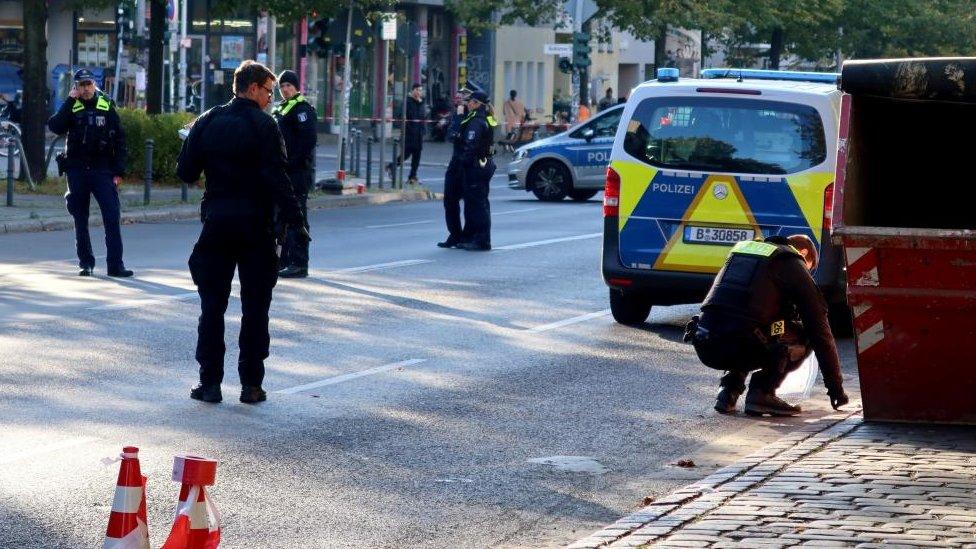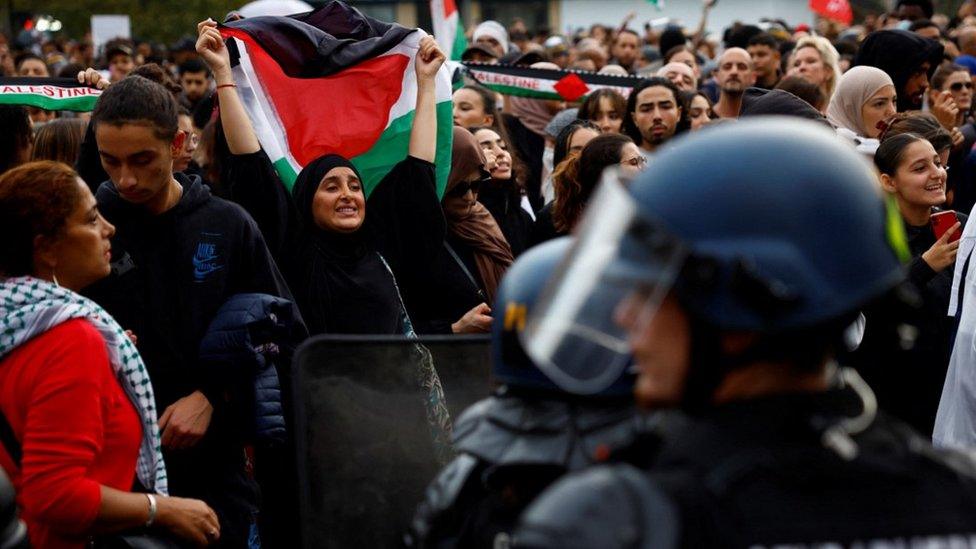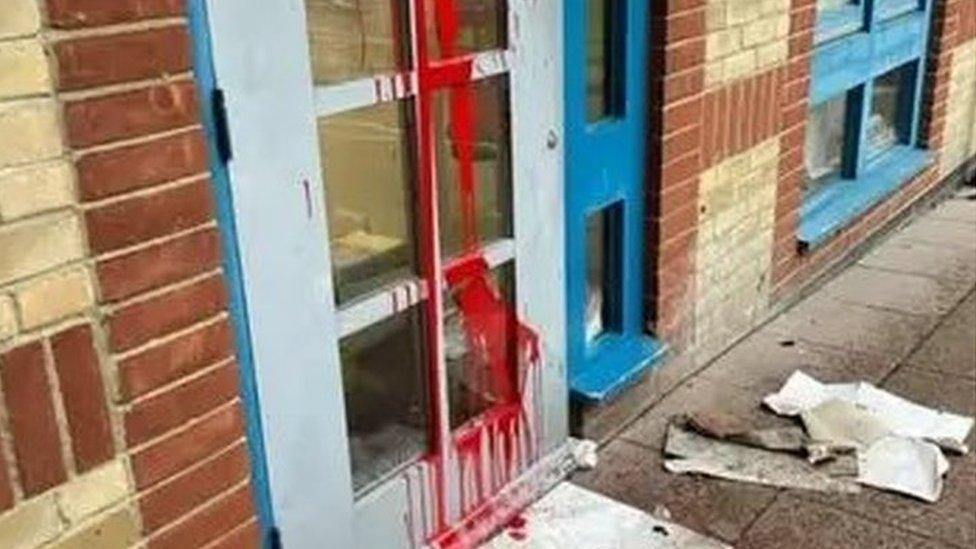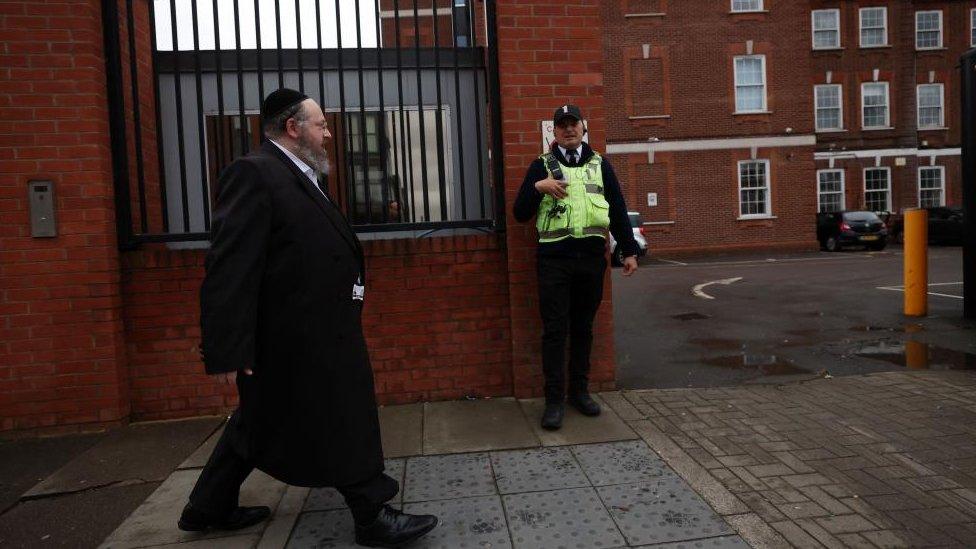Europe antisemitism: Berlin synagogue targeted as attacks rise
- Published

The Jewish centre in the Mitte area of Berlin has asked for beefed-up security in response to the attack
Berlin's Jewish community has been shaken by two petrol bombs thrown at a synagogue amid a spike in antisemitic incidents in some European countries.
Police said two people threw "burning bottles filled with liquid" in what was described as attempted arson.
"We could feel the tensions more and more," said director Anna Segal. She said the community had felt very threatened in recent days.
German Chancellor Olaf Scholz has expressed outrage at the attack.
Violence broke out elsewhere in Berlin overnight during anti-Israel protests. Emergency services were pelted with bottles, stones and fireworks. Protesters set barricades alight in a number of streets and one demonstration close to the Brandenburg Gate involved 700 people, police said.
The latest attacks came as Lebanon's Iran-backed militant group, Hezbollah, called for a "day of rage" over an explosion at a hospital in the Gaza Strip, where hundreds of people are feared dead.
The Central Council of Jews in Germany said "day of rage" was not just a phrase but "psychological terror that leads to concrete attacks". The synagogue also houses a community centre, a kindergarten and high school for 130 children.
Anna Segal told the BBC that the community felt on edge and needed better protection: "We knew it was only a matter of time and it's not the end."
The situation has been escalating all of the past week since the war broke out in Israel. The tensions, we could feel them in the city more and more

There was little sign of the petrol bombs that burned out in front of the synagogue and Jewish community centre at around 03:45 (02:45 GMT).
Jewish institutions typically have ongoing police protection in Germany and reports suggest officers were at the scene when the attack happened.
Hours later, police briefly detained a man who approached the building on a scooter and ran towards the synagogue shouting anti-Israel slogans.
Barriers have been set up around the synagogue and Jewish community centre in the centre of Berlin and officers were positioned along the street.
Last week France and parts of Germany banned pro-Palestinian demonstrations, and Paris police broke up a banned rally in the centre of Paris with tear gas and water cannon.
In a ruling on Wednesday France's Council of State, which advises the government on law, rejected an appeal against the ban.
It said local prefects would have to decide on a case-by-case basis, but could not stop a protest purely because of a note from Interior Minister Gérald Darmanin or because a demonstration was pro-Palestinian.
Responding to a spike in antisemitic incidents on Tuesday night, Mr Darmanin said "nobody will touch a hair of a French Jew without facing a lightning-fast response from the state".
European Commission President Ursula von der Leyen told the European Parliament on Wednesday that Hamas terror had plunged Israel and the Palestinians into a new spiral of violence, external.
"We are seeing a rise in antisemitic incidents, including here in Europe. Synagogues have been vandalised. Hate speech and fake news are spreading at worrying speed, and this is something that we simply cannot accept," she said.
UK Prime Minister Rishi Sunak condemned the rise in antisemitic incidents in the UK as "disgusting".
The Community Security Trust, a British charity which has the role of protecting the Jewish community, called on universities to act "swiftly and firmly" against antisemitism and protect Jewish students. The CST said 36 antisemitic incidents had been recorded on campuses between 7 and 16 October.
Related topics
- Published13 October 2023

- Published16 October 2023

- Published13 October 2023
